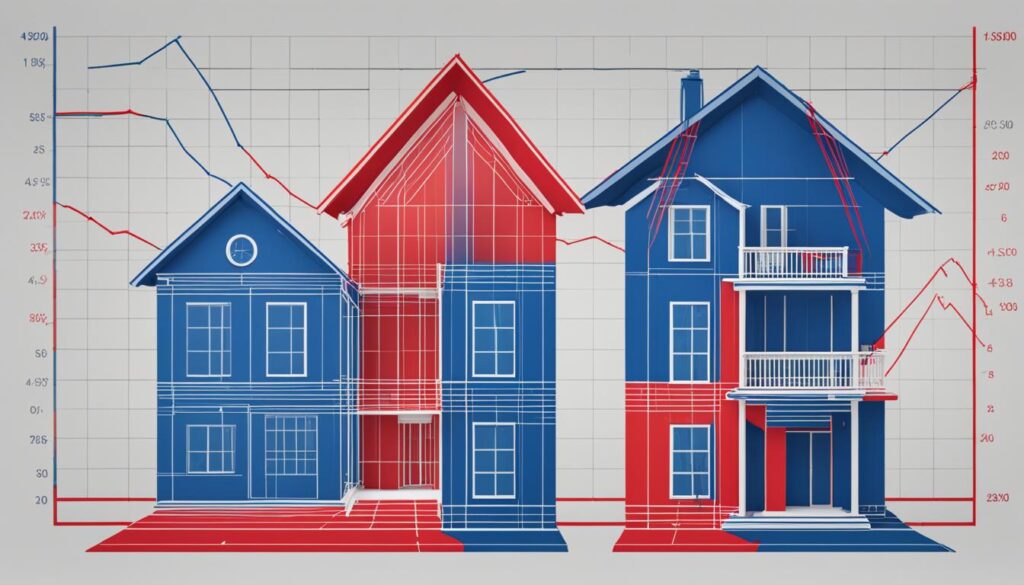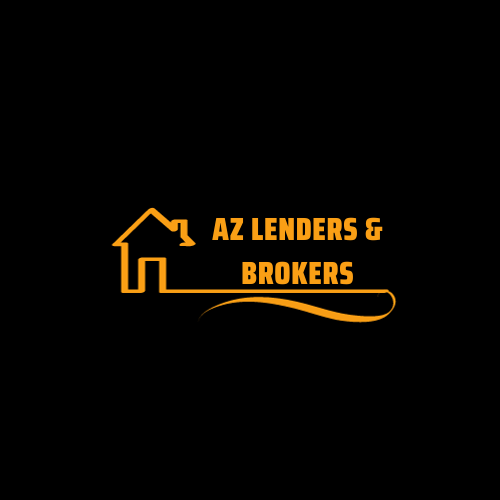Are you considering buying a home or refinancing your current mortgage? Understanding the different types of mortgage loans and their terms is essential to make an informed decision. One popular option to consider is a fixed rate mortgage.
A fixed rate mortgage offers stability and peace of mind by locking in your interest rate for the entire duration of the loan. This means that your monthly payment will remain the same, regardless of any fluctuations in the mortgage interest rates.
Whether you’re a first-time homebuyer or looking to refinance, a fixed rate mortgage can provide you with the security you need to plan your budget effectively and protect yourself from potential increases in interest rates.
Key Takeaways:
- A fixed rate mortgage offers a consistent interest rate and monthly payment throughout the life of the loan.
- By choosing a fixed rate mortgage, you can protect yourself from rising mortgage interest rates.
- Fixed rate mortgages provide stability and are ideal for buyers who prefer a predictable payment schedule.
- Consider your long-term financial goals and budget when deciding between fixed or adjustable-rate mortgages.
- Consulting with a mortgage lender can help you evaluate your options and find the right mortgage terms for your needs.
Understanding Fixed Rate Mortgages
A fixed-rate mortgage is a loan with an interest rate that remains constant (or fixed) throughout the entire life of the loan. It offers consistency and protection from volatility in the market, as your interest rate and monthly payment remain the same. This makes it easier to anticipate and budget for monthly payments.
With a fixed-rate mortgage, you have the peace of mind knowing that your interest rate will not change, regardless of market conditions. This stability can be especially beneficial when interest rates are expected to rise. By locking in a fixed rate, you can protect yourself from potential payment increases in the future.
Additionally, fixed-rate mortgages provide borrowers with the ability to plan their budgets effectively. Since the interest rate and monthly payment remain the same, you can accurately anticipate your housing costs and allocate your funds accordingly. This can be particularly helpful for individuals who prefer financial predictability and want to avoid any surprises when it comes to their mortgage payments.

In summary, fixed-rate mortgages offer stability, predictability, and protection from market fluctuations. They provide borrowers with the peace of mind of knowing exactly how much they will pay each month throughout the life of their loan.
Advantages of Fixed Rate Mortgages
Fixed rate mortgages offer several advantages that make them a popular choice for home buyers. Here are some key advantages of fixed rate mortgages:
- Predictable Payments: With a fixed rate mortgage, your interest rate and monthly payment remain the same throughout the life of the loan. This predictability makes it easier to plan and budget for your mortgage payment, giving you peace of mind and financial stability.
- Protection from Market Volatility: Fixed rate mortgages provide protection from fluctuations in interest rates. Even if mortgage rates rise in the future, your interest rate will remain the same, ensuring that your monthly payment stays consistent. This can be particularly beneficial in times of economic uncertainty or when interest rates are expected to increase.
- Long-Term Savings: While fixed rate mortgages may have slightly higher interest rates initially compared to adjustable-rate mortgages (ARMs), they offer the advantage of long-term savings. If interest rates were to decline in the future, your fixed rate mortgage would remain unaffected, allowing you to benefit from a lower rate and potentially saving you thousands of dollars over the life of the loan.
By choosing a fixed rate mortgage, you can enjoy the stability and predictability of consistent monthly payments, protection from market volatility, and the potential for long-term savings. It’s important to carefully consider your financial situation and long-term goals when deciding on the right mortgage type for you.

Comparing Fixed Rate Mortgages with Adjustable-Rate Mortgages
When comparing fixed rate mortgages with adjustable-rate mortgages (ARMs), it’s important to evaluate your risk tolerance and financial objectives. While fixed rate mortgages offer the advantage of consistent payments and protection from rising interest rates, ARMs can provide more flexibility and potential savings in certain situations. Consider consulting with a loan officer to explore the different options available to you and determine which mortgage type aligns best with your needs.
Disadvantages of Fixed Rate Mortgages
While fixed rate mortgages offer stability and predictability, they do come with certain disadvantages to consider. Here are some key drawbacks of opting for a fixed rate mortgage:
Higher Initial Interest Rates
One of the main downsides of fixed rate mortgages is that they generally have higher interest rates initially compared to adjustable-rate mortgages (ARMs). This means that you may end up paying more in interest over the life of the loan, which can affect your purchasing power and the overall cost of your home over time.
No Potential for Savings if Interest Rates Decline
Another disadvantage of fixed rate mortgages is that they do not offer the potential for savings if interest rates decline. With a fixed rate mortgage, your interest rate remains the same throughout the life of the loan, regardless of any market changes. This means that if interest rates decrease in the future, you won’t be able to take advantage of those lower rates and potentially save money on your monthly payments.
Less Flexibility in Changing Market Conditions
Fixed rate mortgages also lack the flexibility to adjust to changing market conditions. If interest rates decrease significantly after you’ve secured a fixed rate mortgage, you won’t be able to take advantage of those lower rates without refinancing your mortgage, which can come with additional costs and fees.
It’s important to carefully consider these disadvantages when deciding on the type of mortgage that best suits your needs. While fixed rate mortgages provide stability and peace of mind, they may not be the right choice for everyone.

Understanding Adjustable-Rate Mortgages (ARMs)
An adjustable-rate mortgage (ARM) is a loan with an interest rate that adjusts periodically according to market conditions. It typically starts with an introductory period of lower interest rates, which can provide lower initial monthly payments and potentially higher purchasing power. However, after the introductory period, the rate can be adjusted based on the current rate environment, potentially increasing your monthly payment.
Adjustable-rate mortgages offer flexibility that fixed-rate mortgages do not. They can be beneficial if you plan to sell the home or refinance before the rate adjustment period begins. Additionally, ARMs may be advantageous if you expect interest rates to decrease in the future, as your monthly payment could decrease after the adjustment. However, it’s crucial to consider the risks associated with ARM loans, as there is the potential for significant increases in monthly payments if interest rates rise.
“Adjustable-rate mortgages can be a good option for borrowers who plan to move or refinance within a few years. They provide lower initial rates, which can result in lower monthly payments and increased purchasing power. However, it’s important to carefully evaluate your financial situation and future plans to determine if an ARM is the right choice for you.”
Comparing ARM and fixed-rate mortgages:
| Feature | Adjustable-Rate Mortgage (ARM) | Fixed-Rate Mortgage |
|---|---|---|
| Interest Rate | Adjustable | Fixed |
| Initial Rate | Lower than fixed-rate mortgage | Fixed for the entire loan term |
| Rate Adjustment Period | Varies (e.g., every 1, 3, 5, or 10 years) | N/A |
| Monthly Payment | Can increase or decrease after rate adjustment | Remains fixed for the entire loan term |
| Protection from Rate Increases | N/A | Fixed interest rate provides protection |
| Protection from Rate Decreases | N/A | Interest rate remains the same, regardless of market changes |
When considering an adjustable-rate mortgage, it’s essential to understand the terms and conditions of the loan. Take into account the length of the initial rate period, the frequency and limits of rate adjustments, and any caps on how much your interest rate can increase over time. Evaluating your financial goals, risk tolerance, and long-term plans will help you determine if an ARM aligns with your needs.
Advantages of Adjustable-Rate Mortgages (ARMs)
If you’re considering a mortgage, it’s essential to understand the advantages of adjustable-rate mortgages (ARMs). While fixed-rate mortgages offer consistency and protection from rate hikes, ARMs have their own unique benefits that may suit your financial situation and long-term goals.
One significant advantage of ARMs is that they often start with lower interest rates compared to fixed-rate mortgages. This can result in lower initial monthly payments, providing you with more flexibility and potentially higher purchasing power when buying a home. It’s important to note that after the introductory period, the rate can be adjusted based on the current rate environment.
An adjustable-rate mortgage also offers the potential for long-term savings if interest rates decline. As interest rates fluctuate, the rate adjustment feature of ARMs can lead to lower monthly payments, allowing you to potentially save money over the life of the loan. However, it’s important to carefully consider your risk tolerance and budget to ensure you’re comfortable with potential payment changes that may occur in the future.
“An adjustable-rate mortgage often starts with lower interest rates, providing you with more flexibility and potentially higher purchasing power.”
Choosing the right mortgage type, whether it’s a fixed-rate mortgage or an adjustable-rate mortgage, requires careful evaluation. Consider consulting with a loan officer to compare loan types, current rates, and mortgage programs. They can help you determine which option aligns best with your needs and goals, taking into account factors such as your financial situation, risk tolerance, and long-term homeownership plans.
Understanding Mortgage Interest Rates
Mortgage interest rates play a crucial role in determining the overall cost of your mortgage loan. They can affect the affordability of your monthly payments and the total amount you will pay over the life of the loan. It’s essential to stay informed about current interest rates, market trends, and forecasts to make informed decisions regarding your mortgage.

| Year | Average 30-Year Fixed-Rate | Average 15-Year Fixed-Rate | Average 5-Year Adjustable-Rate |
|---|---|---|---|
| 2020 | 3.65% | 3.13% | 3.39% |
| 2019 | 4.78% | 4.15% | 3.78% |
| 2018 | 4.54% | 4.00% | 3.87% |
Table: Average Mortgage Interest Rates for the Past Three Years
As shown in the table above, mortgage interest rates have remained relatively low over the past few years. However, rates can change based on various economic factors, including inflation, market conditions, and the Federal Reserve’s monetary policy. Keeping an eye on trends and forecasts can help you make informed decisions about locking in a favorable interest rate for your mortgage loan.
Disadvantages of Adjustable-Rate Mortgages (ARMs)
While adjustable-rate mortgages (ARMs) may offer some benefits, they come with their fair share of disadvantages that you should consider before making a decision. One of the main drawbacks of ARMs is the uncertainty of future interest rate adjustments. Your monthly payments can increase significantly once the rate adjusts, which can make budgeting more challenging. This unpredictability can be especially worrisome if you have a tight budget or if you anticipate any major life changes that could affect your financial situation.
Another potential disadvantage of ARMs is the prepayment penalty that may apply if you decide to pay off your mortgage before the end of the loan term. This penalty can be a significant financial burden and limit your flexibility in managing your mortgage. It’s important to carefully review the terms and conditions of an ARM, including any potential penalties, before committing to this type of loan.
Exploring the Risks: Uncertainty and Prepayment Penalties
The uncertain nature of adjustable-rate mortgages and the potential for prepayment penalties can make them less attractive for some borrowers. However, it’s important to note that ARMs can still be a viable option for certain individuals or situations. For example, if you plan to sell your home before the rate adjustment period begins, an ARM could provide a lower initial interest rate and help you save on monthly payments in the short term.
Ultimately, the decision between a fixed-rate mortgage and an adjustable-rate mortgage comes down to your personal circumstances and risk tolerance. It’s crucial to carefully evaluate the pros and cons of each option, considering factors such as your long-term plans, financial stability, and market conditions.
Table: Comparison of Fixed-Rate Mortgages and Adjustable-Rate Mortgages
| Features | Fixed-Rate Mortgage | Adjustable-Rate Mortgage |
|---|---|---|
| Interest Rate | Remains the same throughout the loan term | Can adjust periodically based on market conditions |
| Predictability | Consistent monthly payments | Payments can fluctuate after the initial period |
| Protection from Rate Hikes | Rate stays the same even if rates rise | Rate can increase significantly after the adjustment period |
| Prepayment Penalties | No prepayment penalties | May have prepayment penalties |
Ultimately, it’s essential to consider your financial goals, risk tolerance, and future plans when choosing between a fixed-rate mortgage and an adjustable-rate mortgage. Consulting with a mortgage professional can provide valuable insights and help you make an informed decision based on your unique circumstances.

Evaluating Which Mortgage Type is Right for You
Choosing the right mortgage type is an important decision that can have a significant impact on your financial future. Before making a choice, it’s crucial to evaluate your individual needs, budget, and long-term goals. Consider the following factors to determine which mortgage type is right for you:
1. Your financial situation
Assess your current financial situation, including your income, credit score, and debt-to-income ratio. This will help you determine your ability to qualify for different types of mortgages and the maximum loan amount you can afford. If you have a stable income and good credit, you may be eligible for more favorable terms and rates.
2. Risk tolerance
Consider your risk tolerance when choosing between a fixed-rate mortgage and an adjustable-rate mortgage (ARM). Fixed-rate mortgages offer stability and predictability, as the interest rate remains unchanged throughout the loan term. On the other hand, ARMs have lower initial rates but can adjust periodically, potentially leading to higher payments. Evaluate your comfort level with potential payment changes and market fluctuations.
3. Long-term plans
Think about your long-term plans for homeownership. If you plan to stay in your home for many years or even indefinitely, a fixed-rate mortgage may be a better option. It provides peace of mind knowing that your monthly payments will not change. However, if you anticipate moving or refinancing within a few years, an ARM could be more advantageous. You can take advantage of the lower initial rates and potentially save money before the rate adjusts.
Consulting with a loan officer can be invaluable during the decision-making process. They can provide personalized advice, compare different mortgage options, and help you navigate the complexities of mortgage terms and rates. Ultimately, the right mortgage type depends on your unique circumstances and goals. By carefully evaluating your financial situation, risk tolerance, and long-term plans, you can make an informed decision that aligns with your homeownership goals.

| Fixed-Rate Mortgage | Adjustable-Rate Mortgage (ARM) |
|---|---|
| Interest rate remains constant throughout the loan term | Interest rate may adjust periodically based on market conditions |
| Monthly payments remain the same | Monthly payments can change, potentially increasing over time |
| Provides stability and predictability | Offers initial lower rates and potential savings if rates decline |
| Ideal for long-term homeownership | Suitable for shorter-term ownership or refinancing plans |
Trends and Forecasts for Mortgage Rates
Understanding the current trends and forecasts for mortgage rates is essential for anyone considering buying a home, refinancing their mortgage, or looking to invest in real estate. Here, we will explore the latest information and predictions regarding mortgage interest rates, providing you with valuable insights to inform your decision-making process.
According to recent data, mortgage rates have reached their highest levels since 2000, resulting in a sluggish demand for homes. However, it is important to note that forecasting future mortgage rates is a complex task, and experts have different predictions for the future. Institutions like Fannie Mae and the Mortgage Bankers Association offer various insights into what we can expect in terms of interest rates. Keeping up to date with market trends and consulting with professionals will help you make informed decisions that align with your financial goals.
“Mortgage rates have reached their highest levels since 2000, resulting in a sluggish demand for homes.”
Expert Predictions
To provide an overview of the forecasts, we have compiled the latest predictions from Fannie Mae and the Mortgage Bankers Association:
| Year | Fannie Mae | Mortgage Bankers Association |
|---|---|---|
| 2022 | 4.2% | 3.8% |
| 2023 | 4.5% | 4.0% |
| 2024 | 4.8% | 4.3% |
As shown in the table above, both Fannie Mae and the Mortgage Bankers Association predict that mortgage rates will continue to rise in the coming years. However, it’s important to remember that these predictions are subject to change as market conditions evolve. It’s prudent to regularly monitor updates and consult with mortgage professionals for the most accurate and up-to-date information.
In conclusion, having a clear understanding of mortgage rate trends and forecasts is crucial when making financial decisions related to home loans. By staying informed and seeking professional advice, you can navigate the ever-changing landscape of mortgage rates and make decisions that align with your financial goals.

The Popularity of Fixed and Adjustable-Rate Mortgages
When it comes to choosing a mortgage, there are two main options to consider: fixed-rate mortgages and adjustable-rate mortgages. The popularity of these two types of mortgages tends to fluctuate depending on various factors, such as interest rates and market conditions.
Fixed-rate mortgages have traditionally been more popular with the majority of buyers. These mortgages offer consistency and stability, as the interest rate remains the same throughout the entire loan term. This makes it easier for homeowners to plan and budget for their monthly payments, providing peace of mind. Fixed-rate mortgages are often favored by those who plan to own their home for a longer period.
On the other hand, the popularity of adjustable-rate mortgages (ARMs) can vary depending on the current interest rate environment. ARMs start with an initial fixed-rate period, which is typically lower than the rates offered by fixed-rate mortgages. This can result in lower initial monthly payments and potentially higher purchasing power. However, once the initial period ends, the interest rate can adjust based on market conditions, making the monthly payments unpredictable.

The preference for fixed-rate or adjustable-rate mortgages also depends on factors such as the length of time the buyer plans to own the home and their risk tolerance. Those who value stability and predictability may opt for a fixed-rate mortgage, while those who are comfortable with potential rate adjustments and seek flexibility in their mortgage terms may choose an adjustable-rate mortgage.
In conclusion, the popularity of fixed and adjustable-rate mortgages can vary depending on individual circumstances and market conditions. It’s important to carefully evaluate your financial situation, long-term goals, and risk tolerance when deciding which type of mortgage is right for you.
Conclusion
When it comes to choosing a mortgage, weighing the advantages and disadvantages of fixed and adjustable-rate mortgages is crucial. Fixed-rate mortgages offer consistency and protection from potential rate hikes throughout the loan term. With a fixed interest rate, your monthly payment remains consistent, making it easier to plan and budget. On the other hand, adjustable-rate mortgages provide flexibility, with lower initial interest rates and potential savings if interest rates decline in the future.
The right choice ultimately depends on your financial situation, risk tolerance, and long-term plans. Consider factors such as how long you plan to own the property and if any major life changes could affect your mortgage. Consulting with a loan officer can further assist you in comparing loan types, current rates, and mortgage programs to identify the best option for your needs.
Whether you opt for a fixed rate or an adjustable-rate mortgage, understanding mortgage terms is important. Familiarize yourself with the different mortgage loan options and current market trends to make an informed decision. By carefully evaluating your options and seeking professional guidance, you can secure your future and make owning a home a reality.
FAQ
What is a fixed-rate mortgage?
A fixed-rate mortgage is a loan with an interest rate that remains constant throughout the entire life of the loan. This means your monthly payment will remain the same, providing consistency and protection from market volatility.
What are the advantages of a fixed-rate mortgage?
The biggest advantage of a fixed-rate mortgage is the predictability it offers. With a fixed interest rate, your monthly payment remains consistent, making it easier to plan and budget for your mortgage payment. Additionally, fixed-rate mortgages provide protection from volatility in the market, as your interest rate will never change, even if interest rates rise.
What are the disadvantages of a fixed-rate mortgage?
One disadvantage of fixed-rate mortgages is that they generally have higher interest rates initially compared to adjustable-rate mortgages (ARMs). This can affect your purchasing power and the overall cost of your home over time. Another disadvantage is that fixed-rate mortgages do not offer the potential for savings if interest rates decline, as the rate remains the same throughout the life of the loan.
What is an adjustable-rate mortgage (ARM)?
An adjustable-rate mortgage is a loan with an interest rate that adjusts periodically according to market conditions. It typically starts with an introductory period of lower interest rates, which can provide lower initial monthly payments and potentially higher purchasing power. However, after the introductory period, the rate can be adjusted based on the current rate environment, potentially increasing your monthly payment.
What are the advantages of an adjustable-rate mortgage?
One advantage of an adjustable-rate mortgage is that it often starts with lower interest rates compared to fixed-rate mortgages. This can result in lower initial monthly payments and potentially higher purchasing power. Additionally, if interest rates decline, the rate adjustment feature of ARMs can lead to lower monthly payments and long-term savings.
What are the disadvantages of an adjustable-rate mortgage?
The main disadvantage of adjustable-rate mortgages is the uncertainty of future interest rate adjustments. Your monthly payments could increase significantly once the rate adjusts, which can make budgeting more challenging. Additionally, if you decide to pay off your mortgage before the end of the loan term, you may face a prepayment penalty.
How do I choose the right mortgage type?
Choosing the right mortgage type requires careful consideration of your financial situation and long-term goals. Evaluate your risk tolerance and budget to determine if you’re comfortable with potential payment changes. Consider how long you plan to own the home and if any major life changes could affect your mortgage. Consulting with a loan officer can help you compare loan types, current rates, and mortgage programs to determine the best option for your needs.
What are the trends and forecasts for mortgage rates?
Mortgage rates reached their highest levels since 2000 in recent months, and demand for homes may remain sluggish due to these consistently high interest rates. Forecasters, such as Fannie Mae and the Mortgage Bankers Association, have different predictions for future mortgage rates. It’s important to stay informed about market trends and consult with professionals to make informed decisions.
Which mortgage type is more popular?
Fixed-rate mortgages are traditionally more popular with the majority of buyers, especially those who plan to own their home for longer periods. However, the popularity of adjustable-rate mortgages tends to fluctuate alongside changes in interest rates. Factors like market conditions and the length of time the buyer plans to own the home can influence the preference for a fixed or adjustable-rate mortgage.

